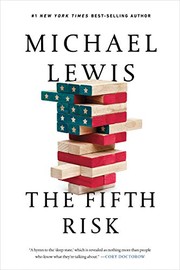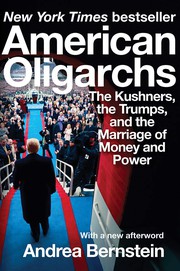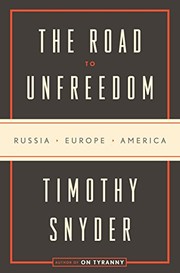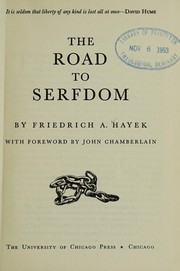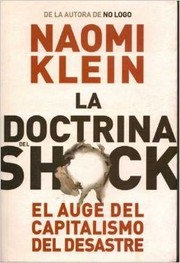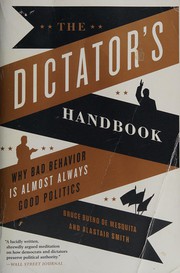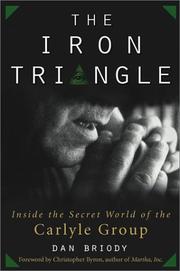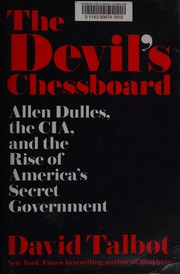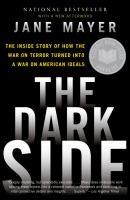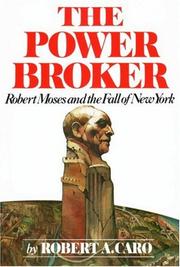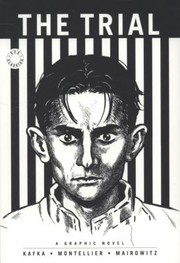Are you fascinated by the dark underbelly of politics and the shady dealings of corrupt government officials? Look no further than this carefully curated list of the 20 best books about corrupt government. From exposés of political scandals to thrilling fictional tales of corruption and power, these books will immerse you in the treacherous world of politics and leave you questioning the true nature of those in power. Whether you’re a political junkie or simply enjoy a gripping story, these corrupt government books are sure to captivate and enthrall you.
Contents
- 1 20 Best Books About Corrupt Government
- 2 The Fifth Risk
- 3 American Oligarchs: The Kushners, the Trumps, and the Marriage of Money and Power
- 4 The Road to Unfreedom: Russia, Europe, America
- 5 The Death of Expertise: The Campaign Against Established Knowledge and Why it Matters
- 6 The Age of Surveillance Capitalism: The Fight for a Human Future at the New Frontier of Power
- 7 The Uninhabitable Earth: Life After Warming
- 8 The Road to Serfdom
- 9 The Shock Doctrine: The Rise of Disaster Capitalism
- 10 The New Jim Crow: Mass Incarceration in the Age of Colorblindness
- 11 The Looting Machine: Warlords, Oligarchs, Corporations, Smugglers, and the Theft of Africa’s Wealth
- 12 The Dictator’s Handbook: Why Bad Behavior is Almost Always Good Politics
- 13 The Price of Inequality: How Today’s Divided Society Endangers Our Future
- 14 The Iron Triangle: Inside the Secret World of the Carlyle Group
- 15 The Devil’s Chessboard: Allen Dulles, the CIA, and the Rise of America’s Secret Government
- 16 The Dark Side: The Inside Story of How the War on Terror Turned into a War on American Ideals
- 17 The Power Broker: Robert Moses and the Fall of New York
- 18 Animal Farm
- 19 Nineteen Eighty-Four
- 20 Brave New World
- 21 The Trial
- 22 Conclusion
- 23
20 Best Books About Corrupt Government
The Fifth Risk
by Michael Lewis
The Fifth Risk by Michael Lewis is an eye-opening book about the intricacies of the American government and the potential consequences of its neglect. Lewis delves into the often overlooked risks that various government agencies manage, and the impact of incompetent leadership on these critical functions. With a keen eye for storytelling, Lewis sheds light on the consequences of a lack of preparedness and expertise in crucial government roles. Through compelling narratives and insightful analysis, the book uncovers the dangers that arise when these risks are mismanaged, making it a must-read for anyone interested in understanding the inner workings of the government and the potential fallout of corrupt governance.
American Oligarchs: The Kushners, the Trumps, and the Marriage of Money and Power
by Andrea Bernstein
American Oligarchs: The Kushners, the Trumps, and the Marriage of Money and Power by Andrea Bernstein is a gripping book about corrupt government. Bernstein delves into the intertwined histories of two powerful families, the Kushners and the Trumps, revealing their rise to wealth and influence through a combination of shrewd business dealings and political maneuvering. The book uncovers the web of connections and backroom deals that have helped these families amass power and influence, shining a light on the corrupt government practices that have allowed them to thrive. With meticulous research and compelling storytelling, Bernstein exposes the marriage of money and power that has shaped American politics and business, offering a revealing look at the inner workings of corrupt government.
The Road to Unfreedom: Russia, Europe, America
by Timothy Snyder
The Road to Unfreedom by Timothy Snyder is a gripping exploration of the rise of authoritarianism in Russia, Europe, and America. Snyder delves into the tactics used by those in power to manipulate political systems and erode democratic values, offering a chilling look at the manipulation of truth, the rise of propaganda, and the erosion of individual freedoms. Through a rich tapestry of historical analysis and contemporary events, Snyder paints a stark picture of the dangers posed by corrupt governments and the impact of their actions on society. With a keen eye for detail and a deep understanding of the complexities of power, Snyder’s book offers a thought-provoking examination of the forces driving the erosion of democracy and the rise of authoritarianism.
The Death of Expertise: The Campaign Against Established Knowledge and Why it Matters
by Tom Nichols
The Death of Expertise by Tom Nichols is a thought-provoking book that delves into the alarming trend of anti-intellectualism and the erosion of respect for established knowledge in modern society. Nichols argues that the rise of the internet and social media has given everyone a platform to voice their opinions, regardless of expertise, leading to a dangerous disregard for expert opinions and a growing distrust of institutions. By examining the impact of this trend on various fields, from politics to education, Nichols highlights the dangers of a society that values personal opinions over established facts. This book is a must-read for anyone concerned about the consequences of a society that dismisses expert knowledge, making it a crucial read in today’s world of misinformation and skepticism towards authority.
The Age of Surveillance Capitalism: The Fight for a Human Future at the New Frontier of Power
by Shoshana Zuboff
The Age of Surveillance Capitalism: The Fight for a Human Future at the New Frontier of Power by Shoshana Zuboff is a groundbreaking book that delves into the pervasive influence of technology and data on our lives. Zuboff explores the rise of surveillance capitalism, where companies exploit personal data for profit, leading to a society where our every move is tracked and monetized. She reveals the alarming extent of this phenomenon and its implications for our democracy, autonomy, and privacy. This book is a wake-up call for readers to understand the power dynamics at play and take action to reclaim control over their data and future. Zuboff’s compelling narrative sheds light on the urgent need to address the challenges posed by surveillance capitalism and its impact on society, making it a must-read for anyone concerned about the encroachment of big tech and its implications for our future.
The Uninhabitable Earth: Life After Warming
by David Wallace-Wells
The Uninhabitable Earth: Life After Warming by David Wallace-Wells is a chilling and urgent exploration of the devastating consequences of climate change. Wallace-Wells paints a stark and horrifying picture of the future if we continue on our current path, detailing the potential for mass extinction, food shortages, and extreme weather events. The book serves as a wake-up call for individuals, governments, and corporations to take immediate action to mitigate the worst effects of global warming. It’s a powerful call to arms for all of us to confront the harsh realities of our changing planet and work towards a more sustainable future. The book is a stark reminder of the dire consequences of inaction and a rallying cry for us to address the challenges of a rapidly warming world.
The Road to Serfdom
by F.A. Hayek
The Road to Serfdom by F.A. Hayek is a groundbreaking book on the dangers of excessive government control and the erosion of individual freedom. Hayek’s work serves as a powerful warning against the perils of a ‘totalitarian state’ and the ‘tyranny of government power’. Through insightful analysis and compelling arguments, the book sheds light on the inherent dangers of centralized planning and the suppression of personal liberty. Hayek’s timeless message is a poignant reminder of the need to safeguard against the encroachment of government authority and the preservation of free markets. The Road to Serfdom is an essential read for anyone seeking to understand the potential consequences of unchecked government power and the importance of defending individual rights and liberties.
The Shock Doctrine: The Rise of Disaster Capitalism
by Naomi Klein
The Shock Doctrine: The Rise of Disaster Capitalism by Naomi Klein is a brilliant exposé on the exploitative tactics used by governments and corporations to capitalize on times of crisis and disaster. Klein delves into the intersection of politics, economics, and corruption, revealing how unscrupulous entities take advantage of moments of upheaval to implement policies that benefit the wealthy elite while exploiting the most vulnerable in society. This gripping and eye-opening book provides a comprehensive analysis of the ways in which corrupt government and corporate interests collude to push through their agenda under the guise of ‘shock therapy’ and emergency measures. Klein’s meticulous research and compelling narrative shed light on the dark underbelly of disaster capitalism, making this a must-read for anyone interested in understanding the insidious workings of corrupt government.
The New Jim Crow: Mass Incarceration in the Age of Colorblindness
by Michelle Alexander
The New Jim Crow: Mass Incarceration in the Age of Colorblindness by Michelle Alexander is a groundbreaking book on corrupt government that examines the racial injustice and systemic discrimination within the criminal justice system. Alexander argues that the mass incarceration of African Americans is the modern-day equivalent of the Jim Crow laws, perpetuating a system of inequality and oppression. Through detailed research and powerful storytelling, she exposes how the War on Drugs has disproportionately targeted black and brown communities, leading to a cycle of poverty, disenfranchisement, and social marginalization. This compelling and eye-opening book about corrupt government challenges the notion of a colorblind society and calls for a radical rethinking of our approach to criminal justice. The New Jim Crow is a must-read for anyone interested in understanding the deep-rooted issues of racism and inequality within the American legal system.
The Looting Machine: Warlords, Oligarchs, Corporations, Smugglers, and the Theft of Africa’s Wealth
by Tom Burgis
The Looting Machine by Tom Burgis is a gripping exposé of the intricate web of corruption and exploitation that plagues Africa. The book delves into the insidious ways in which warlords, oligarchs, corporations, and smugglers collaborate to plunder the continent’s vast wealth, leaving its people impoverished and its resources depleted. Burgis uncovers the complex networks of bribery, fraud, and illicit deals that sustain this looting machine, shedding light on the complicity of Western governments and multinationals in perpetuating the cycle of exploitation. Through compelling narratives and meticulous investigative journalism, the author paints a damning portrait of the pervasive corruption that undermines Africa’s development and perpetuates its poverty. This eye-opening book on corrupt government is a must-read for anyone seeking to understand the forces at play in the theft of Africa’s wealth.
The Dictator’s Handbook: Why Bad Behavior is Almost Always Good Politics
by Bruce Bueno de Mesquita and Alastair Smith
The Dictator’s Handbook: Why Bad Behavior is Almost Always Good Politics is a thought-provoking book about how political leaders maintain power and control in their countries. Authors Bruce Bueno de Mesquita and Alastair Smith provide a fascinating analysis of how leaders in corrupt governments manipulate their systems to retain power. The book explores the incentives and motivations behind the actions of political leaders, shedding light on the strategies they use to stay in power. Through compelling case studies and examples, the authors demonstrate how leaders in corrupt governments prioritize their own interests over the well-being of their citizens. The Dictator’s Handbook offers a unique perspective on political power dynamics and provides valuable insights into the workings of corrupt government systems. This book is essential reading for anyone interested in understanding the complexities of political leadership and governance.
The Price of Inequality: How Today’s Divided Society Endangers Our Future
by Joseph E. Stiglitz
The Price of Inequality by Joseph E. Stiglitz is a thought-provoking book that delves into the detrimental effects of a society divided by economic disparities. Stiglitz, a renowned economist, explores how the unequal distribution of wealth and opportunities leads to social and economic instability. He argues that a society with extreme inequality not only undermines social cohesion but also hinders economic growth. Stiglitz provides a compelling analysis of the consequences of this division, shedding light on the role of government policies and market forces in perpetuating inequality. This book is a powerful critique of the current state of our society, offering valuable insights into the consequences of a corrupt government and the urgent need for reform.
The Iron Triangle: Inside the Secret World of the Carlyle Group
by Dan Briody
The Iron Triangle: Inside the Secret World of the Carlyle Group by Dan Briody provides a deep dive into the world of powerful corporations and their connections to the government. This book uncovers the intricate web of relationships between big business, politics, and the military-industrial complex, revealing the inner workings of a system often shrouded in secrecy. Briody exposes the close ties between the Carlyle Group, a global investment firm, and high-ranking political figures, shedding light on the influence and power wielded by these shadowy entities. Through meticulous research and compelling storytelling, the author reveals the intersection of money, power, and influence in shaping government policies and decisions. The Iron Triangle offers a thought-provoking and eye-opening exploration of the pervasive impact of corporate interests on public governance, making it a must-read for anyone interested in understanding the dynamics of the modern political landscape.
The Devil’s Chessboard: Allen Dulles, the CIA, and the Rise of America’s Secret Government
by David Talbot
The Devil’s Chessboard by David Talbot is a gripping book about corrupt government that delves into the life and legacy of Allen Dulles, the powerful and enigmatic head of the CIA. Talbot reveals the shocking and often sinister behind-the-scenes operations of Dulles and the CIA, and their far-reaching influence on American foreign policy and global affairs. Through meticulous research and compelling storytelling, Talbot paints a vivid picture of a shadowy world where power, deception, and betrayal reign supreme. This corrupt government book uncovers the dark underbelly of American history and exposes the rise of a secret government that operated beyond the bounds of democracy. The Devil’s Chessboard is a fascinating and eye-opening exploration of the hidden forces that have shaped the modern world.
The Dark Side: The Inside Story of How the War on Terror Turned into a War on American Ideals
by Jane Mayer
The Dark Side: The Inside Story of How the War on Terror Turned into a War on American Ideals by Jane Mayer is a compelling exposé of the transformation of the United States government in the aftermath of 9/11. Mayer delves into the murky world of national security to uncover the erosion of American values in the name of fighting terrorism. Through meticulous research and riveting storytelling, she reveals the inner workings of a government that has strayed from its founding principles. This book on corrupt government sheds light on the ethical compromises, legal loopholes, and abuses of power that have tarnished the nation’s reputation. Mayer’s work is a chilling reminder of the dangers of unchecked authority and the importance of safeguarding democratic ideals in times of crisis.
The Power Broker: Robert Moses and the Fall of New York
by Robert A. Caro
The Power Broker: Robert Moses and the Fall of New York by Robert A. Caro is a gripping exploration of the intricate web of power and corruption that defined the governance of New York City in the mid-20th century. Caro’s meticulously researched biography provides a deep dive into the life and career of Robert Moses, the influential city planner who wielded unparalleled control over the urban development of New York. Through Moses’ story, Caro exposes the inner workings of a shadowy world where political power and backroom deals shaped the city’s landscape, often at the expense of its citizens. The book offers a compelling narrative that unveils the darker side of government, shedding light on the consequences of unchecked authority and the impact of corruption on the lives of ordinary people. A must-read for anyone interested in understanding the dynamics of a corrupt government.
Animal Farm
by George Orwell
Animal Farm by George Orwell is a compelling allegorical novella that serves as a powerful commentary on corrupt government. The story revolves around a group of farm animals who overthrow their human farmer and establish their own self-governing society. Initially, the animals are united in their vision of creating a fair and just community. However, as the pigs, who take on leadership roles, become corrupted by power, the farm descends into tyranny and oppression. Through this gripping narrative, Orwell skillfully explores themes of totalitarianism, manipulation, and the dangers of absolute power. Animal Farm serves as a thought-provoking and cautionary tale, shedding light on the pitfalls of corrupt government and the erosion of idealistic principles. This timeless classic continues to resonate with readers as a poignant reminder of the perils of unchecked authority.
Nineteen Eighty-Four
by George Orwell
Nineteen Eighty-Four, a dystopian novel by George Orwell, is a gripping and thought-provoking book about a totalitarian regime and its oppressive control over its citizens. Set in a dystopian future, the story follows Winston Smith, a low-ranking member of the ruling Party, as he navigates a world where independent thought and individuality are forbidden. The Party, led by the enigmatic Big Brother, uses surveillance, propaganda, and manipulation to maintain its power over the people. As Winston rebels against the Party’s iron-fisted rule, he discovers the true extent of its corruption and deceit. Nineteen Eighty-Four is a chilling exploration of the dangers of unchecked government power and the erosion of personal freedoms, making it a must-read for anyone interested in a cautionary tale about the perils of living under a corrupt government.
Brave New World
by Aldous Huxley
Brave New World, written by Aldous Huxley, is a thought-provoking dystopian novel that offers a chilling vision of a future society. Set in a world where technology, consumerism, and a powerful ruling class have created a seemingly perfect, yet deeply flawed, society, the book explores themes of control, conformity, and the dangers of a corrupt government. Huxley’s portrayal of a society where individuality is suppressed and citizens are controlled through conditioning and manipulation is both compelling and disturbing. The novel offers a cautionary tale about the potential consequences of a society ruled by a totalitarian regime. Brave New World is a must-read for anyone interested in thought-provoking literature that delves into the complexities of power and control.
The Trial
by Franz Kafka
The Trial by Franz Kafka is a haunting and surreal exploration of the individual’s struggle against a labyrinthine and oppressive legal system. The story follows the protagonist, Josef K., as he is arrested and put on trial for a crime that is never fully explained. As he navigates through a nightmarish world of bureaucratic red tape and absurdity, Josef K. becomes increasingly entangled in a web of corruption and injustice. Kafka’s masterpiece is a chilling and thought-provoking commentary on the dehumanizing effects of a twisted and arbitrary legal system, making it a compelling read for anyone interested in a book about corrupt government. With its eerie and unsettling atmosphere, The Trial is an unforgettable journey into the heart of a corrupt and nightmarish world.
Conclusion
In conclusion, these 20 books about Corrupt Government shed light on the dark underbelly of political power and the devastating impact of corruption on society. From classic dystopian novels to modern investigative exposés, these books offer a powerful exploration of the dangers and consequences of unchecked government corruption. Whether you’re looking for gripping fiction or eye-opening nonfiction, these books provide essential reading for anyone seeking to understand the complexities of corrupt government and its far-reaching effects.
Which Corrupt Government book is best?
The best book on Corrupt Government can vary with personal preference, but three widely recommended titles are:
- The Fifth Risk by Michael Lewis,
- American Oligarchs: The Kushners, the Trumps, and the Marriage of Money and Power by Andrea Bernstein,
- The Road to Unfreedom: Russia, Europe, America by Timothy Snyder.
Each offers valuable insights and could be a great starting point.
What are the best books to learn about Corrupt Government?
For those looking to learn about Corrupt Government, there is a wealth of literature that can provide a comprehensive understanding of the subject. Some of the most highly recommended books include:
- The Fifth Risk by Michael Lewis,
- American Oligarchs: The Kushners, the Trumps, and the Marriage of Money and Power by Andrea Bernstein,
- The Road to Unfreedom: Russia, Europe, America by Timothy Snyder,
- The Death of Expertise: The Campaign Against Established Knowledge and Why it Matters by Tom Nichols,
- The Age of Surveillance Capitalism: The Fight for a Human Future at the New Frontier of Power by Shoshana Zuboff,
- The Uninhabitable Earth: Life After Warming by David Wallace-Wells,
- The Road to Serfdom by F.A. Hayek,
- The Shock Doctrine: The Rise of Disaster Capitalism by Naomi Klein,
- The New Jim Crow: Mass Incarceration in the Age of Colorblindness by Michelle Alexander,
- The Looting Machine: Warlords, Oligarchs, Corporations, Smugglers, and the Theft of Africa’s Wealth by Tom Burgis
These books offer a range of perspectives on Corrupt Government, covering various aspects and approaches to the subject.
What are the best books on Corrupt Government?
The best books on Corrupt Government include:
- The Fifth Risk by Michael Lewis,
- American Oligarchs: The Kushners, the Trumps, and the Marriage of Money and Power by Andrea Bernstein,
- The Dictator’s Handbook: Why Bad Behavior is Almost Always Good Politics by Bruce Bueno de Mesquita and Alastair Smith,
- The Price of Inequality: How Today’s Divided Society Endangers Our Future by Joseph E. Stiglitz,
- The Shock Doctrine: The Rise of Disaster Capitalism by Naomi Klein,
- The Uninhabitable Earth: Life After Warming by David Wallace-Wells.
Each offers unique insights into the subject. While these books on the topic of Corrupt Government are highly regarded, it’s important to note that any list of ‘best’ books is subjective and reflects a range of opinions.
What are the best Corrupt Government books of all time?
Choosing the best Corrupt Government books of all time can vary depending on who you ask, but seven titles that are often celebrated include
- The Fifth Risk by Michael Lewis,
- American Oligarchs: The Kushners, the Trumps, and the Marriage of Money and Power by Andrea Bernstein,
- The Age of Surveillance Capitalism: The Fight for a Human Future at the New Frontier of Power by Shoshana Zuboff,
- The Shock Doctrine: The Rise of Disaster Capitalism by Naomi Klein,
- The Looting Machine: Warlords, Oligarchs, Corporations, Smugglers, and the Theft of Africa’s Wealth by Tom Burgis,
- The Price of Inequality: How Today’s Divided Society Endangers Our Future by Joseph E. Stiglitz,
- and The Dictator’s Handbook: Why Bad Behavior is Almost Always Good Politics by Bruce Bueno de Mesquita and Alastair Smith.
Each of these books has made a significant impact in the field of Corrupt Government and continues to be influential today.

